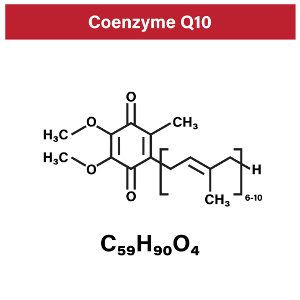afterLoad (456.22KB) (993μs)
afterInitialise (1.27MB) (17.44ms)
afterRoute (840.48KB) (7.77ms)
beforeRenderComponent com_tags (20.62KB) (976μs)
afterRenderComponent com_tags (1.55MB) (86.6ms)
afterDispatch (27.5KB) (3.87ms)
beforeRenderRawModule mod_articles_category (READ MORE...) (439.86KB) (15.01ms)
Before Access::preloadComponents (all components) (50.9KB) (793μs)
After Access::preloadComponents (all components) (103.05KB) (935μs)
Before Access::getAssetRules (id:8 name:com_content) (840B) (19μs)
After Access::getAssetRules (id:8 name:com_content) (7.05KB) (41μs)
afterRenderRawModule mod_articles_category (READ MORE...) (19.85KB) (154ms)
beforeRenderRawModule mod_custom (BOOST YOUR IMMUNE DEFENSE) (6.45KB) (31μs)
afterRenderRawModule mod_custom (BOOST YOUR IMMUNE DEFENSE) (3.8KB) (200μs)
beforeRenderRawModule mod_tags_popular (Search) (2.36KB) (14μs)
afterRenderRawModule mod_tags_popular (Search) (40.99KB) (145ms)
beforeRenderRawModule mod_custom (Get additionel and more detailed knowledge ) (816B) (23μs)
afterRenderRawModule mod_custom (Get additionel and more detailed knowledge ) (1.55KB) (44μs)
beforeRenderRawModule mod_custom (Overview of vitamins, minerals, and essential fatty acids) (768B) (10μs)
afterRenderRawModule mod_custom (Overview of vitamins, minerals, and essential fatty acids) (960B) (22μs)
beforeRenderRawModule mod_custom (Q10 goes by many names) (608B) (9μs)
afterRenderRawModule mod_custom (Q10 goes by many names) (928B) (18μs)
beforeRenderRawModule mod_custom (Check this before you buy a Q10 product) (752B) (9μs)
afterRenderRawModule mod_custom (Check this before you buy a Q10 product) (944B) (17μs)
beforeRenderRawModule mod_custom (Are you taking supplements) (736B) (9μs)
afterRenderRawModule mod_custom (Are you taking supplements) (1.03KB) (17μs)
beforeRenderRawModule mod_custom (Weight loss that works) (736B) (9μs)
afterRenderRawModule mod_custom (Weight loss that works) (1.03KB) (19μs)
beforeRenderRawModule mod_custom (Antiaging) (720B) (12μs)
afterRenderRawModule mod_custom (Antiaging) (912B) (24μs)
beforeRenderRawModule mod_menu (Are you getting enough vitamins and minerals?) (2.5KB) (11μs)
afterRenderRawModule mod_menu (Are you getting enough vitamins and minerals?) (22.39KB) (3.46ms)
beforeRenderRawModule mod_menu (The key to increased well-being) (736B) (27μs)
afterRenderRawModule mod_menu (The key to increased well-being) (17.83KB) (286μs)
beforeRenderRawModule mod_menu (Did you know.....) (720B) (16μs)
afterRenderRawModule mod_menu (Did you know.....) (25.52KB) (297μs)
beforeRenderRawModule mod_custom (Useful Links) (1.06KB) (14μs)
afterRenderRawModule mod_custom (Useful Links) (1.02KB) (31μs)
beforeRenderRawModule mod_custom (Chronic fatigue tied Alan to his bed but Q10 capsules saved him:) (244.28KB) (9.01ms)
afterRenderRawModule mod_custom (Chronic fatigue tied Alan to his bed but Q10 capsules saved him:) (1.06KB) (40μs)
beforeRenderModule mod_custom (Chronic fatigue tied Alan to his bed but Q10 capsules saved him:) (768B) (4μs)
afterRenderModule mod_custom (Chronic fatigue tied Alan to his bed but Q10 capsules saved him:) (1.3KB) (54μs)
beforeRenderRawModule mod_custom (Cholesterol-lowering without side effects:) (368B) (12μs)
afterRenderRawModule mod_custom (Cholesterol-lowering without side effects:) (1.06KB) (23μs)
beforeRenderModule mod_custom (Cholesterol-lowering without side effects:) (752B) (1μs)
afterRenderModule mod_custom (Cholesterol-lowering without side effects:) (1.28KB) (1.05ms)
beforeRenderModule mod_articles_category (READ MORE...) (20.82KB) (340μs)
afterRenderModule mod_articles_category (READ MORE...) (1.25KB) (44μs)
beforeRenderModule mod_custom (BOOST YOUR IMMUNE DEFENSE) (6.81KB) (14μs)
afterRenderModule mod_custom (BOOST YOUR IMMUNE DEFENSE) (1.28KB) (25μs)
beforeRenderModule mod_tags_popular (Search) (1.98KB) (12μs)
afterRenderModule mod_tags_popular (Search) (1.27KB) (23μs)
beforeRenderModule mod_custom (Get additionel and more detailed knowledge ) (1.17KB) (10μs)
afterRenderModule mod_custom (Get additionel and more detailed knowledge ) (1.3KB) (20μs)
beforeRenderModule mod_custom (Overview of vitamins, minerals, and essential fatty acids) (384B) (9μs)
afterRenderModule mod_custom (Overview of vitamins, minerals, and essential fatty acids) (1.31KB) (20μs)
beforeRenderModule mod_custom (Q10 goes by many names) (208B) (9μs)
afterRenderModule mod_custom (Q10 goes by many names) (1.27KB) (21μs)
beforeRenderModule mod_custom (Check this before you buy a Q10 product) (352B) (8μs)
afterRenderModule mod_custom (Check this before you buy a Q10 product) (1.28KB) (21μs)
beforeRenderModule mod_custom (Are you taking supplements) (352B) (8μs)
afterRenderModule mod_custom (Are you taking supplements) (1.28KB) (20μs)
beforeRenderModule mod_custom (Weight loss that works) (336B) (9μs)
afterRenderModule mod_custom (Weight loss that works) (1.27KB) (19μs)
beforeRenderModule mod_custom (Antiaging) (336B) (9μs)
afterRenderModule mod_custom (Antiaging) (3.77KB) (20μs)
beforeRenderModule mod_menu (Are you getting enough vitamins and minerals?) (2.13KB) (11μs)
afterRenderModule mod_menu (Are you getting enough vitamins and minerals?) (1.3KB) (19μs)
beforeRenderModule mod_menu (The key to increased well-being) (352B) (10μs)
afterRenderModule mod_menu (The key to increased well-being) (1.28KB) (20μs)
beforeRenderModule mod_menu (Did you know.....) (336B) (9μs)
afterRenderModule mod_menu (Did you know.....) (1.27KB) (19μs)
beforeRenderModule mod_custom (Useful Links) (1.44KB) (9μs)
afterRenderModule mod_custom (Useful Links) (1.27KB) (20μs)
beforeRenderRawModule mod_menu (Main Menu - English) (29.14KB) (3.79ms)
afterRenderRawModule mod_menu (Main Menu - English) (192.45KB) (5.59ms)
beforeRenderModule mod_menu (Main Menu - English) (720B) (5μs)
afterRenderModule mod_menu (Main Menu - English) (4.86KB) (60μs)
beforeRenderRawModule mod_languages (Sprogskift) (3.94KB) (19μs)
afterRenderRawModule mod_languages (Sprogskift) (22.55KB) (5.09ms)
beforeRenderModule mod_languages (Sprogskift) (720B) (5μs)
afterRenderModule mod_languages (Sprogskift) (5.31KB) (21μs)
beforeRenderRawModule mod_finder () (6.34KB) (11μs)
afterRenderRawModule mod_finder () (128.59KB) (4.2ms)
beforeRenderModule mod_finder () (704B) (4μs)
afterRenderModule mod_finder () (3.29KB) (33μs)
beforeRenderRawModule mod_custom () (6.62KB) (143μs)
afterRenderRawModule mod_custom () (22.66KB) (3.43ms)
beforeRenderModule mod_custom () (704B) (5μs)
afterRenderModule mod_custom () (1.23KB) (49μs)
beforeRenderRawModule mod_menu (Main Menu - English) (5.07KB) (103μs)
afterRenderRawModule mod_menu (Main Menu - English) (6.3KB) (4.82ms)
beforeRenderModule mod_menu (Main Menu - English) (720B) (4μs)
afterRenderModule mod_menu (Main Menu - English) (1.25KB) (45μs)
beforeRenderRawModule mod_languages (Sprogskift Mobil) (912B) (18μs)
afterRenderRawModule mod_languages (Sprogskift Mobil) (3.89KB) (621μs)
beforeRenderModule mod_languages (Sprogskift Mobil) (720B) (3μs)
afterRenderModule mod_languages (Sprogskift Mobil) (1.27KB) (30μs)
beforeRenderRawModule mod_finder () (2.3KB) (8μs)
afterRenderRawModule mod_finder () (6.29KB) (532μs)
beforeRenderModule mod_finder () (704B) (5μs)
afterRenderModule mod_finder () (1.23KB) (47μs)
beforeRenderRawModule mod_custom () (8.66KB) (179μs)
afterRenderRawModule mod_custom () (904B) (139μs)
beforeRenderModule mod_custom () (704B) (3μs)
afterRenderModule mod_custom () (2.43KB) (25μs)
beforeRenderRawModule mod_custom () (688B) (80μs)
afterRenderRawModule mod_custom () (896B) (2.12ms)
beforeRenderModule mod_custom () (704B) (4μs)
afterRenderModule mod_custom () (2.71KB) (25μs)
afterRender (286.48KB) (13.12ms)
| 1 x afterRenderRawModule mod_articles_category (READ MORE...) (19.85KB) (31.16%) | 153.79ms |
| 1 x afterRenderRawModule mod_tags_popular (Search) (40.99KB) (29.36%) | 144.90ms |
| 1 x afterRenderComponent com_tags (1.55MB) (17.54%) | 86.60ms |
| 1 x afterInitialise (1.27MB) (3.53%) | 17.44ms |
| 1 x beforeRenderRawModule mod_articles_category (READ MORE...) (439.86KB) (3.04%) | 15.01ms |
| 1 x afterRender (286.48KB) (2.66%) | 13.12ms |
| 1 x beforeRenderRawModule mod_custom (Chronic fatigue tied Alan to his bed but Q10 capsules saved him:) (244.28KB) (1.82%) | 9.01ms |
| 1 x afterRoute (840.48KB) (1.57%) | 7.77ms |
| 1 x afterRenderRawModule mod_menu (Main Menu - English) (192.45KB) (1.13%) | 5.59ms |
| 1 x afterRenderRawModule mod_languages (Sprogskift) (22.55KB) (1.03%) | 5.09ms |
| 1 x afterRenderRawModule mod_menu (Main Menu - English) (6.3KB) (0.98%) | 4.82ms |
| 1 x afterRenderRawModule mod_finder () (128.59KB) (0.85%) | 4.20ms |
| 1 x afterDispatch (27.5KB) (0.78%) | 3.87ms |
| 1 x beforeRenderRawModule mod_menu (Main Menu - English) (29.14KB) (0.77%) | 3.79ms |
| 1 x afterRenderRawModule mod_menu (Are you getting enough vitamins and minerals?) (22.39KB) (0.7%) | 3.46ms |
| 1 x afterRenderRawModule mod_custom () (22.66KB) (0.7%) | 3.43ms |
| 1 x afterRenderRawModule mod_custom () (896B) (0.43%) | 2.12ms |
| 1 x afterRenderModule mod_custom (Cholesterol-lowering without side effects:) (1.28KB) (0.21%) | 1.05ms |
| 1 x afterLoad (456.22KB) (0.2%) | 993μs |
| 1 x beforeRenderComponent com_tags (20.62KB) (0.2%) | 976μs |
| 1 x After Access::preloadComponents (all components) (103.05KB) (0.19%) | 935μs |
| 1 x Before Access::preloadComponents (all components) (50.9KB) (0.16%) | 793μs |
| 1 x afterRenderRawModule mod_languages (Sprogskift Mobil) (3.89KB) (0.13%) | 621μs |
| 1 x afterRenderRawModule mod_finder () (6.29KB) (0.11%) | 532μs |
| 1 x beforeRenderModule mod_articles_category (READ MORE...) (20.82KB) (0.07%) | 340μs |
| 1 x afterRenderRawModule mod_menu (Did you know.....) (25.52KB) (0.06%) | 297μs |
| 1 x afterRenderRawModule mod_menu (The key to increased well-being) (17.83KB) (0.06%) | 286μs |
| 1 x afterRenderRawModule mod_custom (BOOST YOUR IMMUNE DEFENSE) (3.8KB) (0.04%) | 200μs |
| 1 x beforeRenderRawModule mod_custom () (8.66KB) (0.04%) | 179μs |
| 1 x beforeRenderRawModule mod_custom () (6.62KB) (0.03%) | 143μs |
| 1 x afterRenderRawModule mod_custom () (904B) (0.03%) | 139μs |
| 1 x beforeRenderRawModule mod_menu (Main Menu - English) (5.07KB) (0.02%) | 103μs |
| 1 x beforeRenderRawModule mod_custom () (688B) (0.02%) | 80μs |
| 1 x afterRenderModule mod_menu (Main Menu - English) (4.86KB) (0.01%) | 60μs |
| 1 x afterRenderModule mod_custom (Chronic fatigue tied Alan to his bed but Q10 capsules saved him:) (1.3KB) (0.01%) | 54μs |
| 1 x afterRenderModule mod_custom () (1.23KB) (0.01%) | 49μs |
| 1 x afterRenderModule mod_finder () (1.23KB) (0.01%) | 47μs |
| 1 x afterRenderModule mod_menu (Main Menu - English) (1.25KB) (0.01%) | 45μs |
| 1 x afterRenderModule mod_articles_category (READ MORE...) (1.25KB) (0.01%) | 44μs |
| 1 x afterRenderRawModule mod_custom (Get additionel and more detailed knowledge ) (1.55KB) (0.01%) | 44μs |
| 1 x After Access::getAssetRules (id:8 name:com_content) (7.05KB) (0.01%) | 41μs |
| 1 x afterRenderRawModule mod_custom (Chronic fatigue tied Alan to his bed but Q10 capsules saved him:) (1.06KB) (0.01%) | 40μs |
| 1 x afterRenderModule mod_finder () (3.29KB) (0.01%) | 33μs |
| 1 x beforeRenderRawModule mod_custom (BOOST YOUR IMMUNE DEFENSE) (6.45KB) (0.01%) | 31μs |
| 1 x afterRenderRawModule mod_custom (Useful Links) (1.02KB) (0.01%) | 31μs |
| 1 x afterRenderModule mod_languages (Sprogskift Mobil) (1.27KB) (0.01%) | 30μs |
| 1 x beforeRenderRawModule mod_menu (The key to increased well-being) (736B) (0.01%) | 27μs |
| 1 x afterRenderModule mod_custom (BOOST YOUR IMMUNE DEFENSE) (1.28KB) (0.01%) | 25μs |
| 1 x afterRenderModule mod_custom () (2.43KB) (0.01%) | 25μs |
| 1 x afterRenderModule mod_custom () (2.71KB) (0.01%) | 25μs |
| 1 x afterRenderRawModule mod_custom (Antiaging) (912B) (0%) | 24μs |
| 1 x beforeRenderRawModule mod_custom (Get additionel and more detailed knowledge ) (816B) (0%) | 23μs |
| 1 x afterRenderRawModule mod_custom (Cholesterol-lowering without side effects:) (1.06KB) (0%) | 23μs |
| 1 x afterRenderModule mod_tags_popular (Search) (1.27KB) (0%) | 23μs |
| 1 x afterRenderRawModule mod_custom (Overview of vitamins, minerals, and essential fatty acids) (960B) (0%) | 22μs |
| 1 x afterRenderModule mod_custom (Q10 goes by many names) (1.27KB) (0%) | 21μs |
| 1 x afterRenderModule mod_custom (Check this before you buy a Q10 product) (1.28KB) (0%) | 21μs |
| 1 x afterRenderModule mod_languages (Sprogskift) (5.31KB) (0%) | 21μs |
| 1 x afterRenderModule mod_custom (Get additionel and more detailed knowledge ) (1.3KB) (0%) | 20μs |
| 1 x afterRenderModule mod_custom (Overview of vitamins, minerals, and essential fatty acids) (1.31KB) (0%) | 20μs |
| 1 x afterRenderModule mod_custom (Are you taking supplements) (1.28KB) (0%) | 20μs |
| 1 x afterRenderModule mod_custom (Antiaging) (3.77KB) (0%) | 20μs |
| 1 x afterRenderModule mod_menu (The key to increased well-being) (1.28KB) (0%) | 20μs |
| 1 x afterRenderModule mod_custom (Useful Links) (1.27KB) (0%) | 20μs |
| 1 x Before Access::getAssetRules (id:8 name:com_content) (840B) (0%) | 19μs |
| 1 x afterRenderModule mod_custom (Weight loss that works) (1.27KB) (0%) | 19μs |
| 1 x afterRenderModule mod_menu (Did you know.....) (1.27KB) (0%) | 19μs |
| 1 x afterRenderRawModule mod_custom (Weight loss that works) (1.03KB) (0%) | 19μs |
| 1 x afterRenderModule mod_menu (Are you getting enough vitamins and minerals?) (1.3KB) (0%) | 19μs |
| 1 x beforeRenderRawModule mod_languages (Sprogskift) (3.94KB) (0%) | 19μs |
| 1 x afterRenderRawModule mod_custom (Q10 goes by many names) (928B) (0%) | 18μs |
| 1 x beforeRenderRawModule mod_languages (Sprogskift Mobil) (912B) (0%) | 18μs |
| 1 x afterRenderRawModule mod_custom (Check this before you buy a Q10 product) (944B) (0%) | 17μs |
| 1 x afterRenderRawModule mod_custom (Are you taking supplements) (1.03KB) (0%) | 17μs |
| 1 x beforeRenderRawModule mod_menu (Did you know.....) (720B) (0%) | 16μs |
| 1 x beforeRenderRawModule mod_tags_popular (Search) (2.36KB) (0%) | 14μs |
| 1 x beforeRenderRawModule mod_custom (Useful Links) (1.06KB) (0%) | 14μs |
| 1 x beforeRenderModule mod_custom (BOOST YOUR IMMUNE DEFENSE) (6.81KB) (0%) | 14μs |
| 1 x beforeRenderRawModule mod_custom (Antiaging) (720B) (0%) | 12μs |
| 1 x beforeRenderModule mod_tags_popular (Search) (1.98KB) (0%) | 12μs |
| 3 x beforeRenderModule mod_custom () (704B) (0%) | 12μs |
| 1 x beforeRenderRawModule mod_custom (Cholesterol-lowering without side effects:) (368B) (0%) | 12μs |
| 1 x beforeRenderRawModule mod_menu (Are you getting enough vitamins and minerals?) (2.5KB) (0%) | 11μs |
| 1 x beforeRenderModule mod_menu (Are you getting enough vitamins and minerals?) (2.13KB) (0%) | 11μs |
| 1 x beforeRenderRawModule mod_finder () (6.34KB) (0%) | 11μs |
| 1 x beforeRenderRawModule mod_custom (Overview of vitamins, minerals, and essential fatty acids) (768B) (0%) | 10μs |
| 1 x beforeRenderModule mod_custom (Get additionel and more detailed knowledge ) (1.17KB) (0%) | 10μs |
| 1 x beforeRenderModule mod_menu (The key to increased well-being) (352B) (0%) | 10μs |
| 1 x beforeRenderRawModule mod_custom (Check this before you buy a Q10 product) (752B) (0%) | 9μs |
| 1 x beforeRenderRawModule mod_custom (Are you taking supplements) (736B) (0%) | 9μs |
| 1 x beforeRenderRawModule mod_custom (Weight loss that works) (736B) (0%) | 9μs |
| 1 x beforeRenderModule mod_custom (Overview of vitamins, minerals, and essential fatty acids) (384B) (0%) | 9μs |
| 1 x beforeRenderModule mod_custom (Antiaging) (336B) (0%) | 9μs |
| 1 x beforeRenderModule mod_menu (Did you know.....) (336B) (0%) | 9μs |
| 2 x beforeRenderModule mod_menu (Main Menu - English) (720B) (0%) | 9μs |
| 2 x beforeRenderModule mod_finder () (704B) (0%) | 9μs |
| 1 x beforeRenderRawModule mod_custom (Q10 goes by many names) (608B) (0%) | 9μs |
| 1 x beforeRenderModule mod_custom (Q10 goes by many names) (208B) (0%) | 9μs |
| 1 x beforeRenderModule mod_custom (Weight loss that works) (336B) (0%) | 9μs |
| 1 x beforeRenderModule mod_custom (Useful Links) (1.44KB) (0%) | 9μs |
| 1 x beforeRenderModule mod_custom (Check this before you buy a Q10 product) (352B) (0%) | 8μs |
| 1 x beforeRenderModule mod_custom (Are you taking supplements) (352B) (0%) | 8μs |
| 1 x beforeRenderRawModule mod_finder () (2.3KB) (0%) | 8μs |
| 1 x beforeRenderModule mod_languages (Sprogskift) (720B) (0%) | 5μs |
| 1 x beforeRenderModule mod_custom (Chronic fatigue tied Alan to his bed but Q10 capsules saved him:) (768B) (0%) | 4μs |
| 1 x beforeRenderModule mod_languages (Sprogskift Mobil) (720B) (0%) | 3μs |
| 1 x beforeRenderModule mod_custom (Cholesterol-lowering without side effects:) (752B) (0%) | 1μs |
 Asthma is characterized by chronic inflammation and oxidative stress. Smoking, air pollution, heavy metals, and various environmental allergens also increase the risk. However, it appears that an optimal level of selenium and manganesein the blood can potentially improve health and survival in asthma patients. This is partly because selenium and manganese function as antioxidants that counteract oxidative stress and chronic inflammation. At the same time, selenium helps eliminate heavy metals, according to a study published in Scientific Reports.
Asthma is characterized by chronic inflammation and oxidative stress. Smoking, air pollution, heavy metals, and various environmental allergens also increase the risk. However, it appears that an optimal level of selenium and manganesein the blood can potentially improve health and survival in asthma patients. This is partly because selenium and manganese function as antioxidants that counteract oxidative stress and chronic inflammation. At the same time, selenium helps eliminate heavy metals, according to a study published in Scientific Reports.







 Cystic fibrosis is a serious condition that affects the respiratory tract. It comes with chronic inflammation and sticky mucous and is known to cause early death. Patients who take high-dosed
Cystic fibrosis is a serious condition that affects the respiratory tract. It comes with chronic inflammation and sticky mucous and is known to cause early death. Patients who take high-dosed 
 There are several possible causes of male impotence, and the risk increases with age. Oxidative stress appears to play a role, as this condition contributes to local atherosclerosis, which restricts blood flow to the penis. However, consuming a variety of antioxidants - such as
There are several possible causes of male impotence, and the risk increases with age. Oxidative stress appears to play a role, as this condition contributes to local atherosclerosis, which restricts blood flow to the penis. However, consuming a variety of antioxidants - such as  People suffering from the Crohn’s disease, an inflammatory bowel disorder, often lack
People suffering from the Crohn’s disease, an inflammatory bowel disorder, often lack
 The ageing process and most chronic diseases like diabetes, cardiovascular disease, and cancer involve chronic inflammation that has the potential to damage healthy tissue. If acute hyperinflammation occurs, for example in connection with virus infections like influenza and COVID-19, the condition may become potentially life-threatening. It is therefore vital that the body can control the different inflammatory processes. One of the things that is needed for this is
The ageing process and most chronic diseases like diabetes, cardiovascular disease, and cancer involve chronic inflammation that has the potential to damage healthy tissue. If acute hyperinflammation occurs, for example in connection with virus infections like influenza and COVID-19, the condition may become potentially life-threatening. It is therefore vital that the body can control the different inflammatory processes. One of the things that is needed for this is  Most chronic pulmonary diseases – including asthma, bronchitis, and COPD (Chronic Obstructive Pulmonary Disease) – are characterized by chronic inflammation that makes both the symptoms and the prognosis worse. Fish and fish oil supplements contain specific
Most chronic pulmonary diseases – including asthma, bronchitis, and COPD (Chronic Obstructive Pulmonary Disease) – are characterized by chronic inflammation that makes both the symptoms and the prognosis worse. Fish and fish oil supplements contain specific 
 The body uses inflammation as part of its normal immune response to infections and tissue damage. If inflammation becomes chronic, however, it can be extremely dangerous. What happens is that it bombards the body with free radicals. This leads to oxidative stress and increases the risk of cell damage, overweight, and chronic diseases like type 2 diabetes, cardiovascular disease, autoimmune diseases, and different cancer forms. Diet and lifestyle play a major role, and according to a meta-analysis published in Frontiers in Pharmacology,
The body uses inflammation as part of its normal immune response to infections and tissue damage. If inflammation becomes chronic, however, it can be extremely dangerous. What happens is that it bombards the body with free radicals. This leads to oxidative stress and increases the risk of cell damage, overweight, and chronic diseases like type 2 diabetes, cardiovascular disease, autoimmune diseases, and different cancer forms. Diet and lifestyle play a major role, and according to a meta-analysis published in Frontiers in Pharmacology, 
 The rate of inflammatory bowel diseases like ulcerous colitis is growing, and diet plays a major role. Even if you eat a healthy diet, it can be a challenge to get enough
The rate of inflammatory bowel diseases like ulcerous colitis is growing, and diet plays a major role. Even if you eat a healthy diet, it can be a challenge to get enough  Regular sport is good for you, whereas arduous training and high-performance sport can result in physical injuries, infections, chronic inflammation, and serious diseases due to oxidative stress. This phenomenon occurs as a result of the increased energy turnover, which produces an excess of free radicals that cause damage to cells and tissues. Oxidative stress is also associated with impaired performance, poor restitution, and faster ageing. Our only natural defense against free radicals is the presence of antioxidants, and it is especially things like
Regular sport is good for you, whereas arduous training and high-performance sport can result in physical injuries, infections, chronic inflammation, and serious diseases due to oxidative stress. This phenomenon occurs as a result of the increased energy turnover, which produces an excess of free radicals that cause damage to cells and tissues. Oxidative stress is also associated with impaired performance, poor restitution, and faster ageing. Our only natural defense against free radicals is the presence of antioxidants, and it is especially things like  Uric acid is a natural waste product in the blood formed when the body breaks down dead cells. If uric acid levels become too high, it can lead to gout, a chronic condition associated with elevated blood pressure, kidney disease, cardiovascular disease, and other illnesses marked by chronic inflammation. According to a population study published in Frontiers in Endocrinology, there appears to be a link between
Uric acid is a natural waste product in the blood formed when the body breaks down dead cells. If uric acid levels become too high, it can lead to gout, a chronic condition associated with elevated blood pressure, kidney disease, cardiovascular disease, and other illnesses marked by chronic inflammation. According to a population study published in Frontiers in Endocrinology, there appears to be a link between  Since the 1950s, the rate of asthma has increased dramatically, especially among children and adolescents. Altered diet habits play a significant role, and now a Swedish population study shows that children who get too little
Since the 1950s, the rate of asthma has increased dramatically, especially among children and adolescents. Altered diet habits play a significant role, and now a Swedish population study shows that children who get too little  Many people suffer from chronic inflammation, which sets the stage for a host of diseases such as asthma, type 2 diabetes, atherosclerosis, depression, cancer, rheumatoid arthritis, and other autoimmune diseases. The presence of chronic inflammation may also make infections such as coronavirus and influenza potentially life-threatening by derailing the immune defense. According to a new study from the University of South Australia that is published in International Journal of Epidemiology, it appears that
Many people suffer from chronic inflammation, which sets the stage for a host of diseases such as asthma, type 2 diabetes, atherosclerosis, depression, cancer, rheumatoid arthritis, and other autoimmune diseases. The presence of chronic inflammation may also make infections such as coronavirus and influenza potentially life-threatening by derailing the immune defense. According to a new study from the University of South Australia that is published in International Journal of Epidemiology, it appears that  "After about one week of taking the Q10 supplement I could feel a huge difference," says 23-year old Alan Piccini, who has been suffering from extreme fatigue and muscle aches ever since he was a child.
"After about one week of taking the Q10 supplement I could feel a huge difference," says 23-year old Alan Piccini, who has been suffering from extreme fatigue and muscle aches ever since he was a child. “Taking capsules with co-enzyme Q10 has freed me of the severe side effects of my cholesterol lowering medicine,” Mrs Franken explains.
“Taking capsules with co-enzyme Q10 has freed me of the severe side effects of my cholesterol lowering medicine,” Mrs Franken explains.